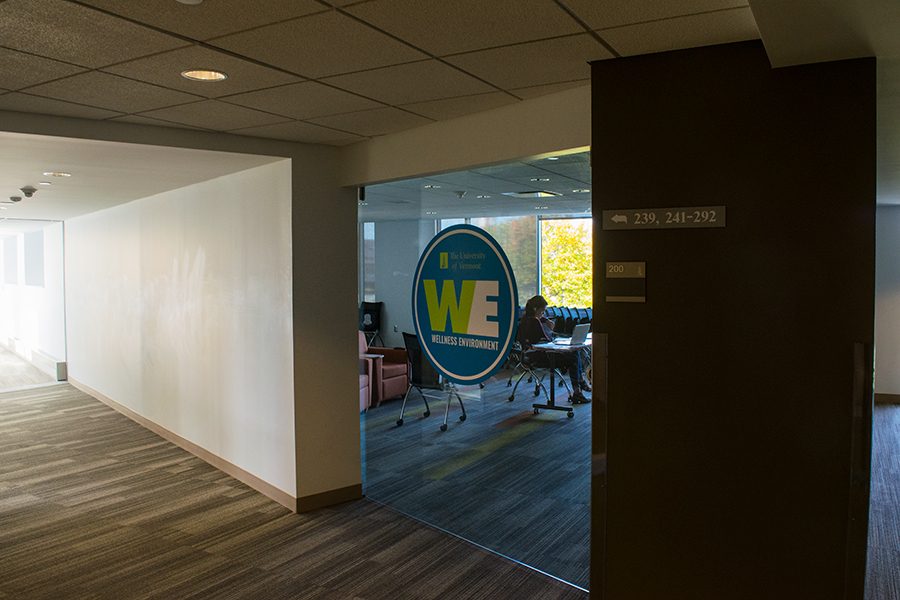Beds open in WE residence halls
After violating housing contract, students must move to new dorms
November 6, 2017
Spots in Wellness Environment dorms across campus are opening as students are removed for violating their housing contracts.
There are five empty WE beds, according to WE director Jim Hudziak. Eleven students have been removed from WE dorms on both Redstone and Central campuses so far this academic year, said Rafael Rodriguez, director of Residential Life.
Five additional students will be relocated from WE housing once open spaces are identified, according to an Oct. 27 email from Rodriguez.
Students are removed from the program if they are in violation of the WE Code, said Jeffrey Rettew, associate director of WE.
Students entering WE housing must sign the WE Code, which states they must keep “drugs, alcohol, paraphernalia associated with drugs and/or alcohol and their influence, out of the environment.”
The code states that WE housing provides students with “an environment best-suited for fostering healthy minds so healthy bodies can follow.”
Students living in WE housing must take COMU 001: Healthy Brains, Healthy Bodies, a course for WE first-years. They must also participate in the four pillars of WE: fitness, nutrition, mindfulness and mentorship—“with an open and respectful mind,” the code states.
A violation of this code in any way results in removal from the program, Rettew said.
Students will not be removed from WE for drinking or using drugs outside of the environment, Hudziak stated in an Oct. 12 email.
“We discourage it, but do not contract against it,” Hudziak stated.
Students in violation of the contract must have a meeting with Hudziak and discuss their wrongdoing, he stated.
Hudziak calls this meeting a “WE Moment.”
A WE Moment is an opportunity for a student to explain the circumstances around the violation and to learn of the consequences, Hudziak stated in the email.
Sophomore Mario Andres Vega was removed from WE last year.
Vega joined “for the Apple Watch” and was removed for smoking marijuana in the dorms, he said.
Vega was moved into a single in University Heights South.
Rettew reaches out to the Residential Education Team if a student needs to be relocated, he said.
The team provides resources to help students with a variety of issues from roommate conflicts to feelings of isolation, Rettew said.
ResLife then works to find any available room on campus for that student to move into.
The process could take anywhere from a day to a couple of weeks, Rettew said.
ResLife cannot remove anyone from a WE hall if there is no other available bed for the student.
When re-assigning students removed from WE, ResLife looks for beds that meet similar costs to what a student initially signed up for, Rettew said.
There are different ways to fill beds in WE and no single standard process, Rettew said.
“Oftentimes, the priority is de-tripling rooms [in the Christie-Wright-Patterson complex and Central campus Wellness Environment housing],” he said.
Rettew said there are sometimes cases of “extenuating circumstances” with roommate issues which would increase that student’s odds of moving into the Wellness Environment.
Many people currently contact ResLife and WE about available beds in CWP or the Central Campus Residence Hall, Rettew said.
But ResLife and WE directors are “looking to maximize the experience of the students who are currently in the program,” Rettew said.
Although a student removed from WE housing will not have a bed in the Wellness Environment anymore, the student is “still encouraged to come back and hang out with their friends [and] still encouraged to come back and use the fitness center,” Rettew said.







